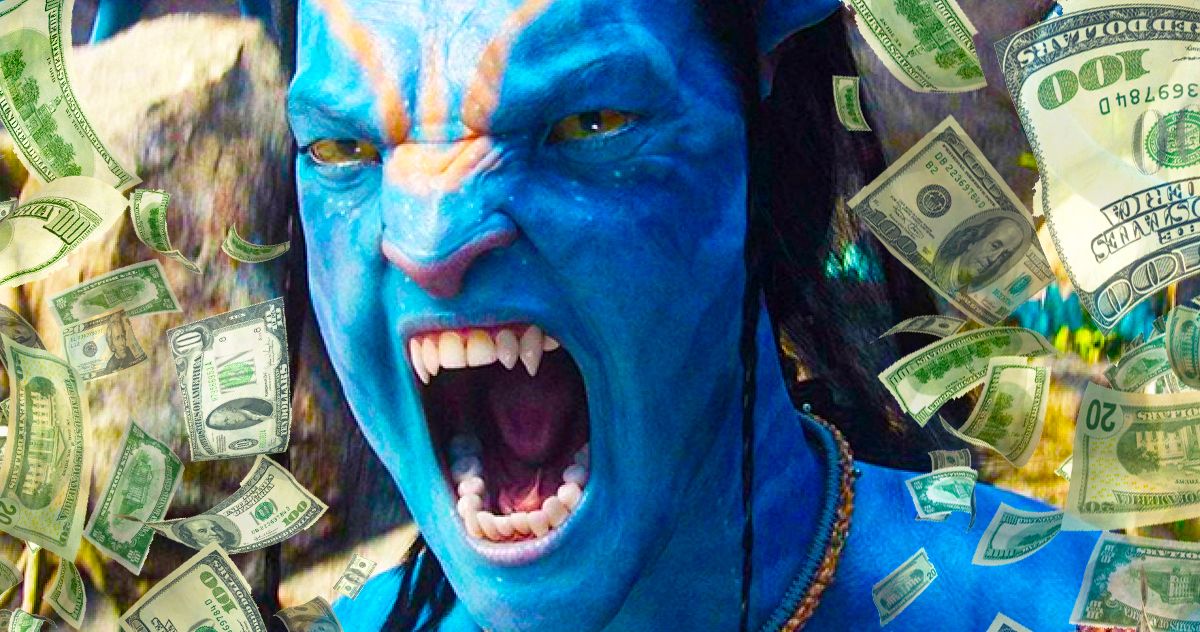James Cameron's 2009 sci-fi blockbuster Avatar, once again, stands alone as the highest-grossing movie in box office history. The movie was recently re-released in China, as theaters in the country have reopened and seen steady business in recent months. It earned just enough to put it in front of Avengers: Endgame, which took the title from Avatar in the summer of 2019. But now, Cameron is back in charge as the unquestioned king of the box office. An important, if seemingly crazy question must now be asked; can Avatar become the first movie in history to cross the $3 billion dollar mark?
First, let's look at where things stand. With the recent grosses added upon its Chinese re-release, as of this writing, Avatar has earned just over $2.81 billion worldwide. That puts it above Avengers: Endgame, which had managed to bring in just shy of $2.8 billion during its record-breaking run in 2019. That means, Avatar would need to add an additional $189 million, give or take a few hundred thousand, to crack the $3 billion mark.
That would put us in truly unprecedented territory. Especially considering that only five movies in history have ever crossed the $2 billion mark. And two of those movies, Star Wars: The Force Awakens ($2.06 billion) and Avengers: Infinity War ($2.04 billion) are, relatively speaking, just barely in that elite club. The fifth movie being another James Cameron blockbuster in the form of 1997's Titanic which, over time, has climbed its way to $2.2 billion, good enough for the number three spot. Though that also illustrates the insane rarity, almost bordering on impossible fluke, that is Avatar.
Before diving into how Avatar could, and I stress could get to $3 billion, it is worth looking at how the movie made its money in the first place. Unlike Avengers: Endgame, which had an Earth-shattering $357 million domestic opening weekend, then inched its way to $2.8 billion, Avatar opened, somewhat humbly by comparison, to $77 million domestically in December 2009. But the drop-off was not sharp. It declined less than 2 percent in its second weekend, taking in another $75 million. And it just kept going, and going, with a similar pattern emerging overseas.
Eventually, after months in theaters, it had amassed nearly $2 billion in international grosses to go with around $750 million domestically. Its path to the top was not a typical one for a major blockbuster. It didn't have one big weekend only to fall off the face of the Earth in a matter of weeks. This was, to use a possibly outdated reference, the Energizer Bunny of blockbusters. It just kept going and going. It is also worth pointing out that premium format theaters, such as 3D and IMAX, which generally carry a higher ticket price, were a huge factor.
But that was 2009. This is now. Much has changed. For one, it remains to be seen just how much of an Avatar fanbase there is out there. Was this purely an of its moment thing? Does it have staying power? Is it timeless, as director James Cameron has suggested? That will be the million-dollar question in the coming months as we speed toward the release of Avatar 2 (as well as Avatar 3, Avatar 4 and Avatar 5). Because it's the interest in those sequels that could, in turn, provide a huge boost to the original movie that Disney hopes will become a multi-billion dollar, multi-movie franchise.
Because Avatar was released so long ago, Disney will inevitably re-release the movie elsewhere as the box office begins to stabilize around the world. Particularly, we should expect a big, flashy re-release in the months leading up to the release of Avatar 2 in December 2022. If audiences turn up to reacquaint themselves with the world of Pandora en masse in anticipation of the long-awaited sequel, $3 billion could be in reach. Though it is, admittedly, a stretch.
Even in the best of cases, a blockbuster's re-release in theaters has its limits. Take, for example, the 20th-anniversary re-release of Jurassic Park in 2013. Steven Spielberg's beloved dino-filled adaptation of Michael Crichton's novel of the same name took in $118.1 million during its run. This was, again, aided by 3D tickets at the time. The other example, when looking at the established ceiling for this sort of thing, is 1997's release of the Star Wars special editions by George Lucas. A New Hope took in a truly impressive $138.2 million during its domestic re-release. The Empire Strikes Back earned $67.5 million while Return of the Jedi notched an additional $45.4 million. And this is Star Wars we're talking about.
Accounting for inflation, Star Wars: A New Hope's re-release would have earned around $300 million in today's dollars. So the bigger, more specific question is, can Avatar do what Star Wars did in 1997? It unquestionably helps that Avatar will likely be released in various territories around the world. It won't be relying purely on moviegoers in the U.S. If, and it is perhaps a big if, that interest is there and excitement builds for the sequel, a new box office record, the likes of which may truly never be achieved again, could be in the cards. Avatar 2 is set to hit theaters on December 16, 2022. Avatar 3 will arrive on December 20, 2024, with set to follow on December 18, 2026. And finally, Avatar 5 on December 22, 2028. These numbers were provided by Box Office Mojo.

